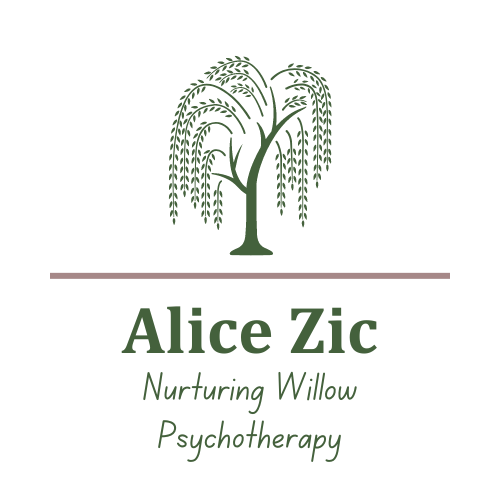A Mother Wound Therapist Says You CAN Get Angry & Confident
A Mother Wound Therapist Explains the Impact of the Mother Wound on Your Anger and Confidence and Shares How to Heal
You always wanted that easygoing, best friend mother-daughter relationship. But no matter what you did, it was never good enough for her. Sure, she acted like you two were close, like you were the best daughter in public. But in private? The mask wore off. Nothing was right. Everything you did was criticized. And it just felt like, she did not like you.
What did you do wrong?
Nothing. You are a mother wounded adult daughter and you were raised by an emotionally immature mother.
Okay, so what exactly is a mother wound? Let’s dive in.
What is a Mother Wound?
A mother wound is a lack of mothering. It occurs when you are raised by or are disconnected from an emotionally immature or absent mother. This may be a mom who was neglectful, highly critical, controlling, entitled, self-absorbed, passive, and/or emotionally, physically, and/or sexually abusive. Additionally, she may have abandoned you and/or created a feeling of abandonment. These wounds typically begin in early childhood, during the early developmental years before you learn to speak, and are also marked by a lack of certain qualities in your relationship, including delight, curiosity, nurture, guidance, and structure/protection.
Signs and Symptoms of a Mother Wound
Signs of the Mother Wound
During childhood, common signs of the mother wound include:
Emotional abuse
Physical abuse
Sexual abuse
Neglect
Being ignored or criticized for expressing emotions
Being ridiculed and/or bullied by your mom and/or other family members
Acting as an emotional and/or practical caretaker (or surrogate parent/best friend for your mom)
Gaslighting (being told you made something up or that something never happened when you pointed out an uncomfortable reality)
Being criticized at home, but expected to act “loving” and “perfect” in public
Extreme loneliness
Inconsistent and confusing boundaries (strict control about some things but invasive about others)
Symptoms of the Mother Wound
In adulthood, symptoms of the mother wound show up as and include:
People-pleasing
Perfectionism
Hypervigilance (often on edge as to whether others are upset, frustrated, etc)
High-functioning anxiety
Depression
Low self-esteem and low self-worth
Highly self-critical and shaming thoughts
Working to exhaustion and/or burnout
Codependency
Extreme loneliness and/or isolation
Avoidance of conflict and/or anger
Fear of expressing needs, emotions, and/or saying no
Repeated toxic romantic relationships and/or friendships
Why the Mother Wound Makes You Avoid Anger (And Also Conflict)
Growing up, you probably witnessed your emotionally immature mother struggle with expressing her emotions. Her anger showed up unexpectedly and explosively. As a child that was scary. At the same time, you were also not allowed to express YOUR anger or speak up for yourself. This is because emotionally immature mothers struggle with tolerating their children’s emotional expression. Expressing big feelings probably felt very uncomfortable. It is also very likely that you never saw any conflict resolution or repair. When you saw your mom explode, and while you got shut down, everyone else had to “move past it” or pretend like nothing had ever happened.
As a result, you learned to associate anger with something bad and conflict with fear. But here’s the thing about emotionally immature mothers and anger—an emotionally immature mom usually confuses an expression of basic needs with “disrespect” and accuses it of being inappropriate anger. You may have been told or implied that you are too much. You may have been told not to talk back. Through these messages, you learned to suppress your needs and to take care of your mom’s emotional needs and upheavals instead.
Despite this confusion and messaging, there is a critical difference between anger and aggression:
Anger is the emotional expression—it’s a feeling that is always valid. Anger gives you information about what you need and perceive about yourself, your environment, and yourself in your environment
Aggression is a behavior that can harm others: this can include yelling, verbal/emotional abuse, pushing, kicking hitting (physical harm), and throwing objects or hitting objects
When anger does not have the permission to be expressed or understood, it can turn into aggression. And because you witnessed aggression every time there was conflict, it’s likely that you also never saw anyone RESOLVE conflict in a safe, clear way.
Why the Mother Wound Takes Away Your Confidence (And Power)
Here’s the thing about anger—you actually NEED it. Despite the fact that you learned to suppress your anger and needs so that you were not “disrespectful” or “too much,” this emotion does A LOT for you. Anger helps you know when you are being stepped on, when someone is violating your boundaries, when you are feeling unsafe or threatened. And, in that way, anger is there is to PROTECT you.
How to Bring Back Your Anger and Learn Conflict Resolution
In order to manage conflict, bring back your confidence, and assert your needs, you have got to notice what those needs are and—you guessed it, what your anger feels like!
Here are a few tips you can practice:
Practice slowing down with deep breathing: Take deep breaths in (for four 4 counts) and deep breaths out (for 6 counts). Slowing down helps you notice what you are experiencing internally.
Journal to reflect: Reflect on situations and moments that made you angry, what it felt like in your body to feel angry (sensations you experienced), and thoughts and beliefs you had. Reflecting more frequently helps create more curiosity and observational skills about your emotions. The more you do this, the more awareness you will have to respond mindfully in the moment.
Begin expressing your needs: Be gentle on yourself as you are learning something new, and something that may feel uncomfortable. It may be helpful to give yourself a template in the beginning. This can sound something like: “I am feeling X, and I need help with Y.” or “I need X right now and I do not appreciate Y.”
Practice with a trusted friend or partner: Let your friend or partner know that you are working on expressing your needs and anger and ask for their support. Practice using the templates above when communicating your needs and feelings to them. When you (inevitably) do not see eye-to-eye on something, view it as an opportunity! Share your thoughts with them and see how this experience sits within your body.
Other Ways to Heal the Mother Wound
Begin therapy with a trauma-focused mother wound therapist: Working with a therapist who is an expert in the mother wound speciality will support your long-term healing, provide you with specific tools for emotional awareness, childhood trauma healing, conflict resolution, and reparenting.
Make time to tune into your needs and body: Set aside time to observe the emotions and sensations you are experiencing in your body. Get curious about how these internal experiences connect to your emotional experiences and what information they give you about your needs.
Practice self-soothing: This can include practicing incorporating grounding techniques, deep breathing, movement, and other coping strategies rooted in connecting to your basic five senses and your body, all allowing you to offer yourself comfort and joy.
Start Online Therapy to Heal the Mother Wound
Online Therapy in Connecticut and Virginia
Alice Zic, MPH, LCSW | Mother Wound Therapist & Owner, Nurturing Willow Psychotherapy, LLC
Click the button below to schedule your free 15-minute consultation phone call
Complete the pre-consult questions
Consult with Alice Zic, Mother Wound Therapist
Begin your journey toward healing your mother wound and becoming a confident you!
Online Therapy in Connecticut
Heal Childhood Trauma, Grieve the Mother You Didn’t Have
Why make healing your mother wound even more intimidating than it has to be? My virtual practice is located in Colchester, CT and I offer online therapy for mother wounds throughout Connecticut. All you need is your device and a private space—easy! Learn more and get started with online therapy in Connecticut below:
Online Therapy in Falls Church, Virginia
Recover from the Mother Wound, Reparent Your Inner Child
It is SO hard to find a therapist who really gets mother wounding and can help you heal. I am a trained trauma therapist and mother wound expert licensed in Virginia and I provide online therapy throughout Virginia. All you need is your device and your private, cozy space, and we are good to go! Get started below:
About Alice Zic, Trauma Therapist in CT & VA
Alice Zic is a licensed clinical social worker and trauma therapist in Connecticut and Virginia. She specializes in providing online therapy for mother wounded women and children of immigrants. Through a trauma-informed and attachment-based approach, she helps those with mother wounds finally find a safe space to heal their childhood trauma, express their needs, and embrace self-love. Alice is trained in Internal Family Systems (IFS) and uses this trauma-specific modality to support clients in long-term healing and recovery. To start working with Alice, click below:






